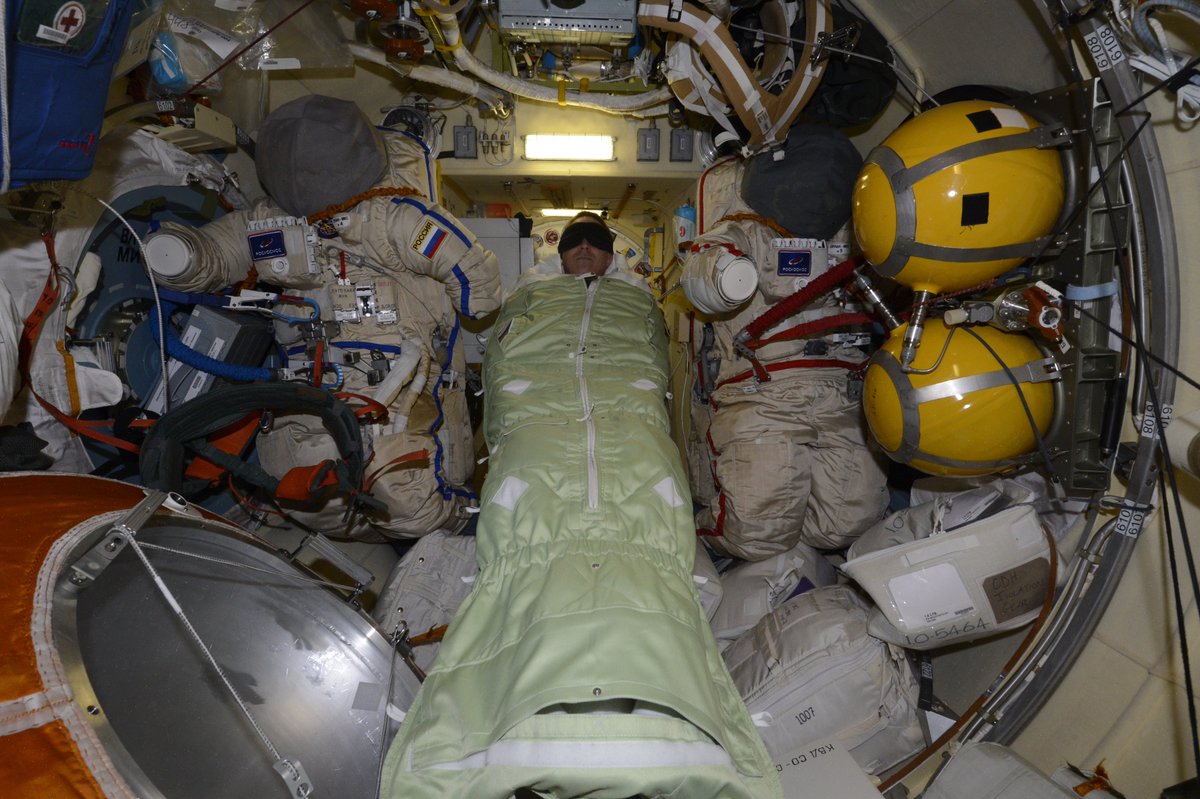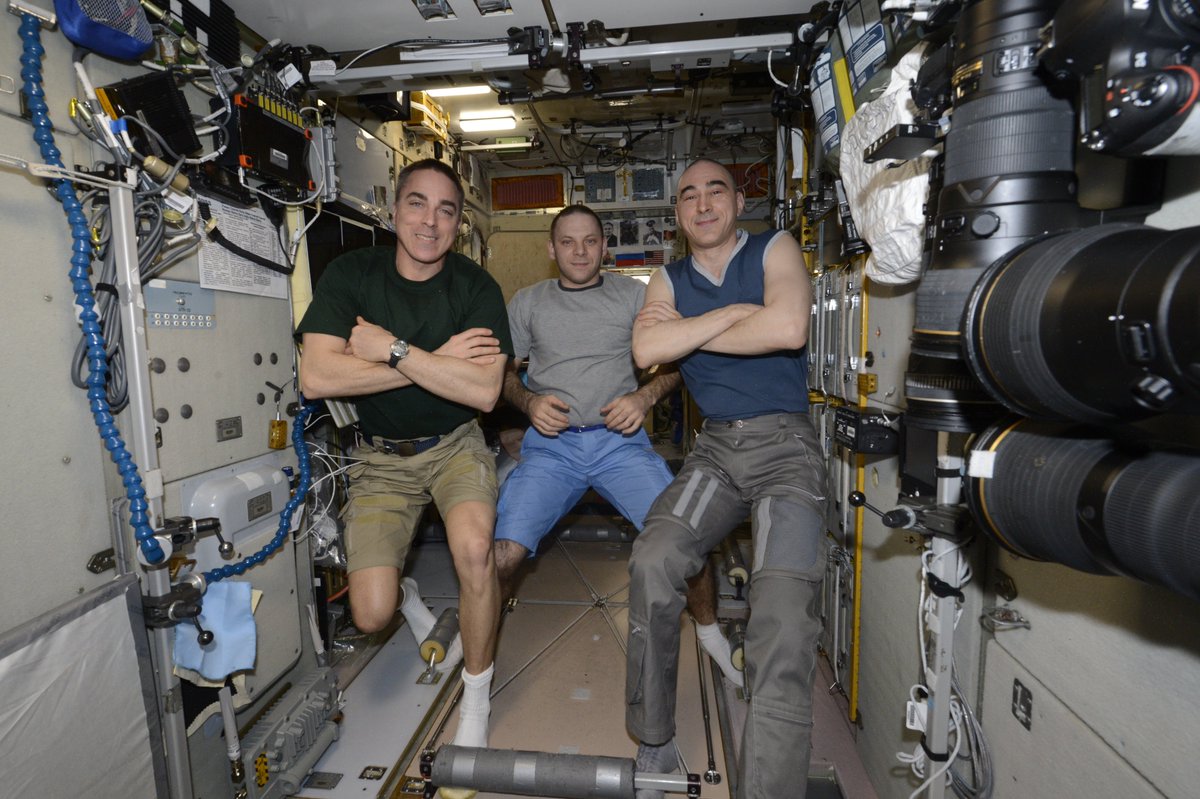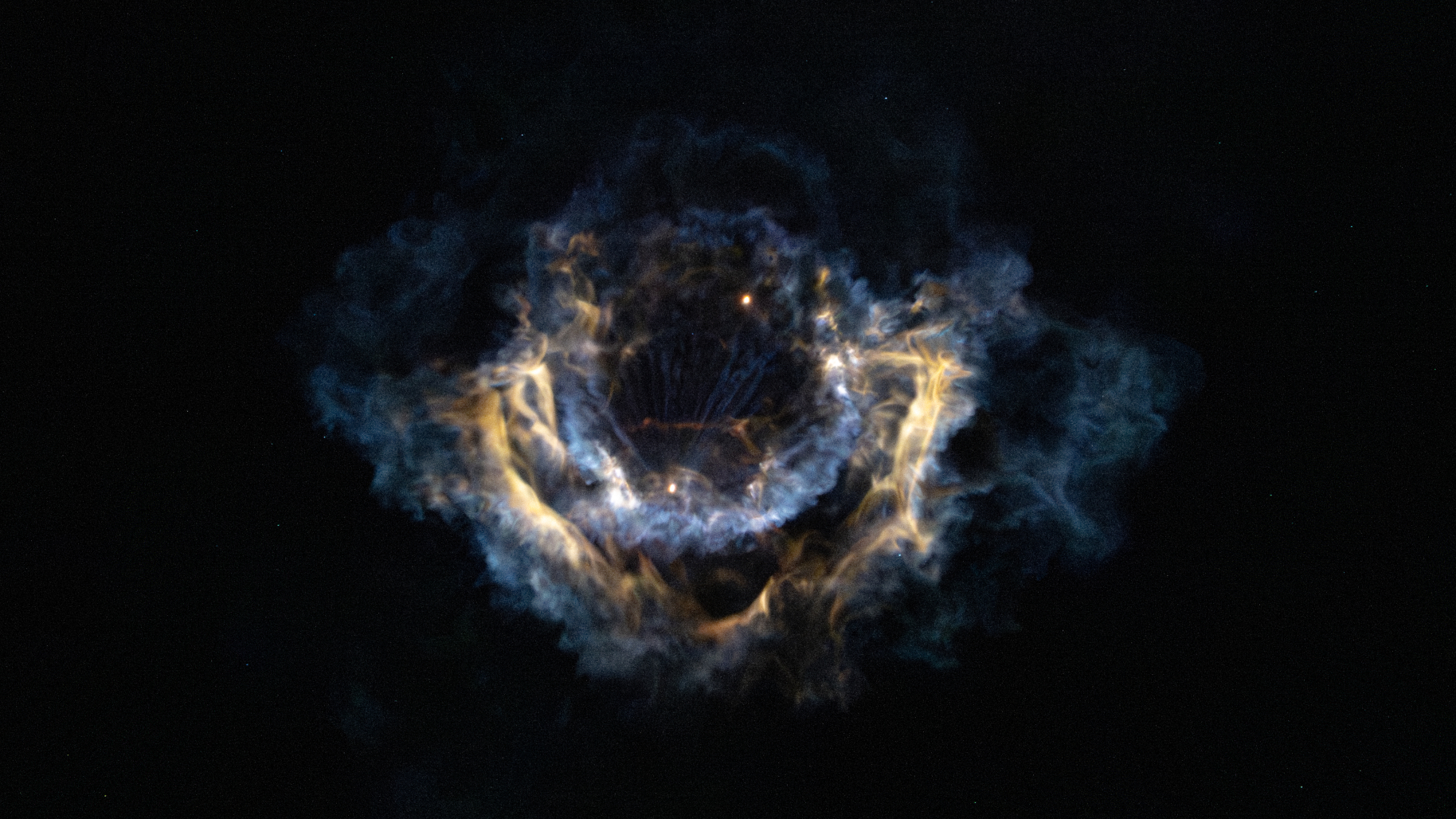Space station crew spend extra night in Russian segment as air leak investigation continues

Breaking space news, the latest updates on rocket launches, skywatching events and more!
You are now subscribed
Your newsletter sign-up was successful
Want to add more newsletters?

Delivered daily
Daily Newsletter
Breaking space news, the latest updates on rocket launches, skywatching events and more!

Once a month
Watch This Space
Sign up to our monthly entertainment newsletter to keep up with all our coverage of the latest sci-fi and space movies, tv shows, games and books.

Once a week
Night Sky This Week
Discover this week's must-see night sky events, moon phases, and stunning astrophotos. Sign up for our skywatching newsletter and explore the universe with us!

Twice a month
Strange New Words
Space.com's Sci-Fi Reader's Club. Read a sci-fi short story every month and join a virtual community of fellow science fiction fans!
Update, Aug. 25, 9:45 a.m.: The trio of astronauts currently living and working on the International Space Station reopened the hatch between the Russian and American sides of the station this morning, according to NASA spokesperson Dan Huot. Support staff will continue to evaluate the situation and determine any tasks for the crew to complete over the course of the week.
Original story: Astronauts spent another night in the International Space Station's Russian segment Monday (Aug. 24) while ground controllers continue to search for the source of a small air leak on the orbiting lab.
NASA's Chris Cassidy, commander of the station's current Expedition 63, and Russian cosmonauts Anatoly Ivanishin and Ivan Vagner have been confined to the orbiting lab's Zvezda service module since Friday (Aug. 21) as ground teams investigate the leak, which NASA officials stress poses no threat to the spaceflyers.
The original plan called for the trio to have the run of the full station again by Monday. But ground teams need a little more time to conduct their work, so Cassidy, Ivanishin and Vagner will extend their sleepover by at least a day, NASA announced this afternoon.
Related: The Expedition 63 mission to the International Space Station (photos)
Staying in space isolation at the International @Space_Station for 4.5 months already, we isolated for three days in the two modules of the station Russian segment because of a small air leak. No need to worry!More detailed — https://t.co/WmmitCB7H3 (see my comment in English) pic.twitter.com/8XjOGjDPHcAugust 22, 2020
"All of the orbiting lab’s hatches will remain closed until Tuesday morning to give ground specialists additional time to collect data and monitor pressure readings in each module," agency officials wrote in an update. "The rate is still well within segment specifications and presents no danger to the crew or the space station."
Air slowly leaks from the International Space Station over time, and the orbiting lab is regularly repressurized using nitrogen tanks brought up by cargo craft. In September 2019, NASA and the station's other partner agencies noticed that the normal background leak rate was slightly elevated.
Breaking space news, the latest updates on rocket launches, skywatching events and more!
"Because of routine station operations like spacewalks and spacecraft arrivals and departures, it took time to gather enough data to characterize those measurements," NASA officials wrote in today's update. "That rate has slightly increased, so the teams are working a plan to isolate, identify and potentially repair the source."
Cassidy, Ivanishin and Vagner remain comfortable within Zvezda, which also gives them access to a mini-research module called Poisk, the Russian Progress 76 cargo craft and the Russian Soyuz crew vehicle that carried them to the station this past April.
The trio "mainly focused on Earth photography Monday," NASA officials wrote in today's update. "The station’s Russian segment has a variety of windows the crew can look out with advanced camera gear for their Earth-observation activities."
Mike Wall is the author of "Out There" (Grand Central Publishing, 2018; illustrated by Karl Tate), a book about the search for alien life. Follow him on Twitter @michaeldwall. Follow us on Twitter @Spacedotcom or Facebook.

Michael Wall is a Senior Space Writer with Space.com and joined the team in 2010. He primarily covers exoplanets, spaceflight and military space, but has been known to dabble in the space art beat. His book about the search for alien life, "Out There," was published on Nov. 13, 2018. Before becoming a science writer, Michael worked as a herpetologist and wildlife biologist. He has a Ph.D. in evolutionary biology from the University of Sydney, Australia, a bachelor's degree from the University of Arizona, and a graduate certificate in science writing from the University of California, Santa Cruz. To find out what his latest project is, you can follow Michael on Twitter.

